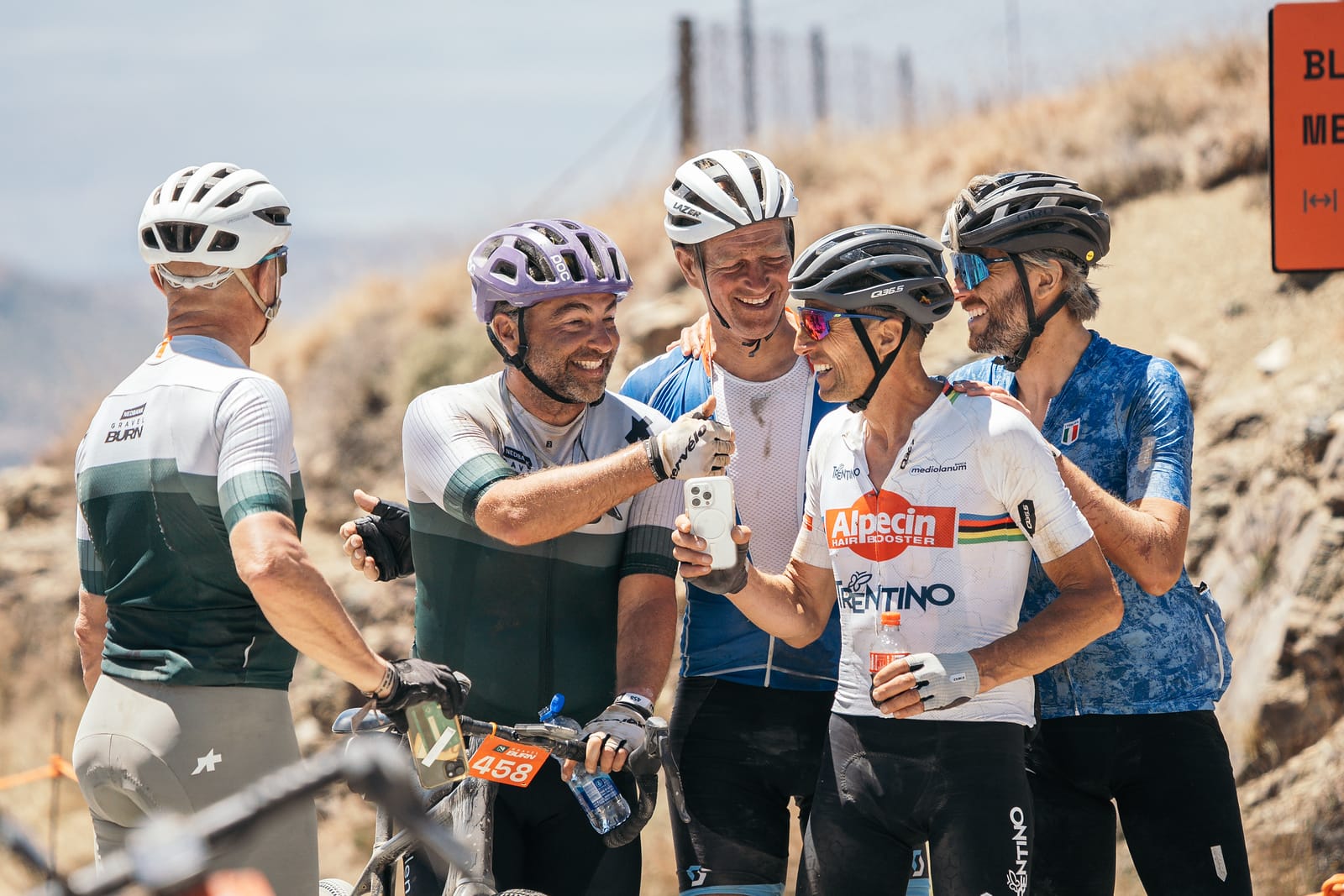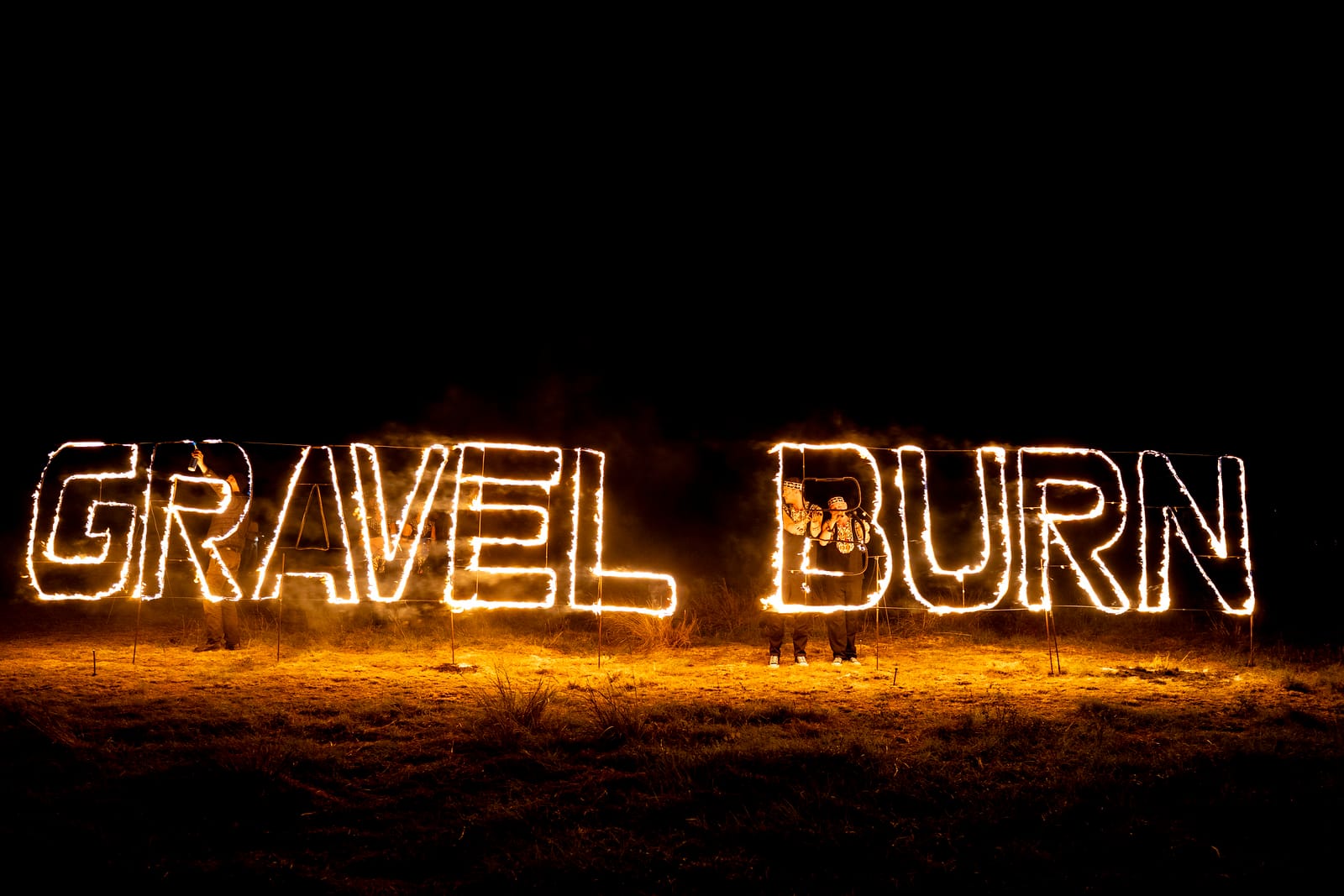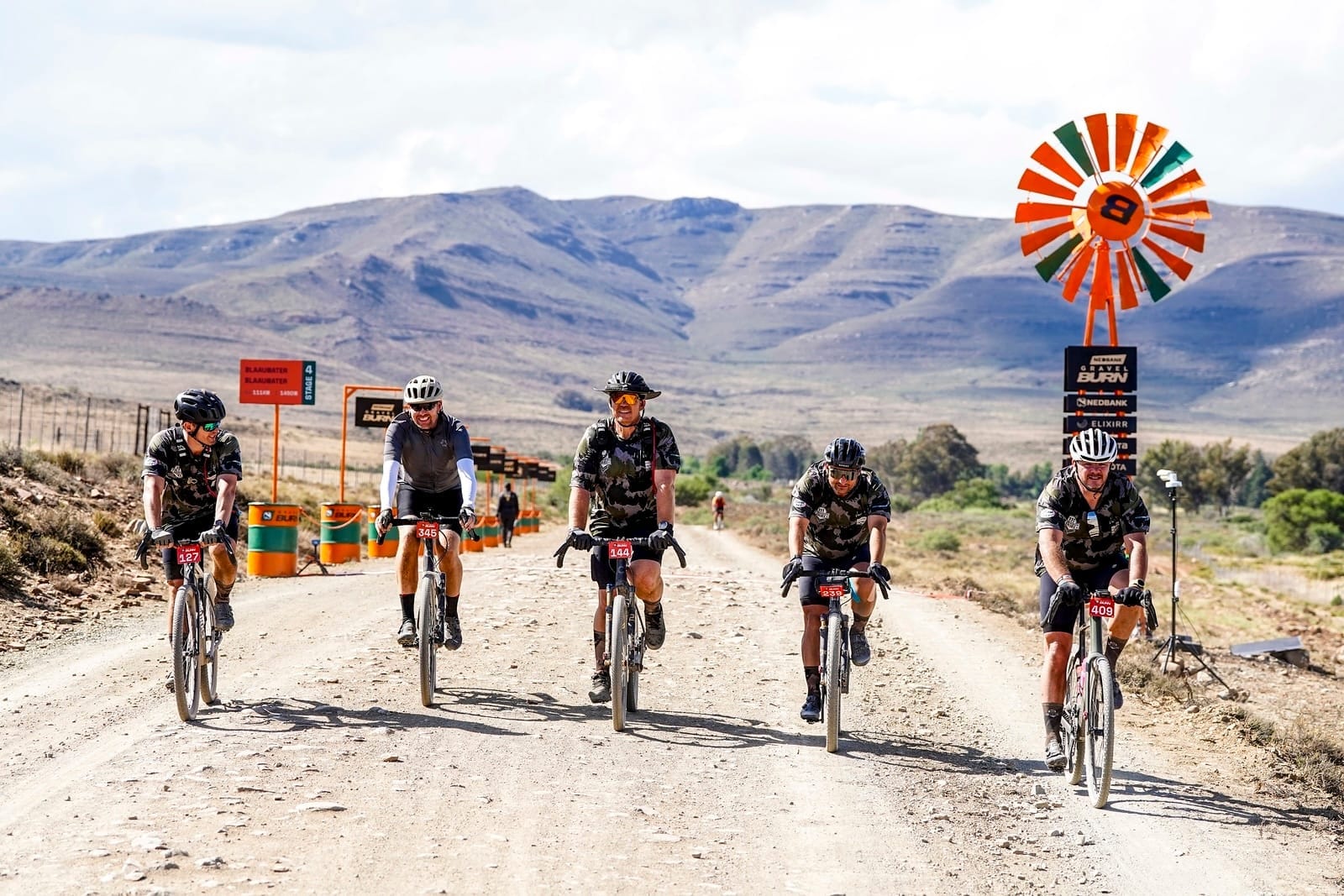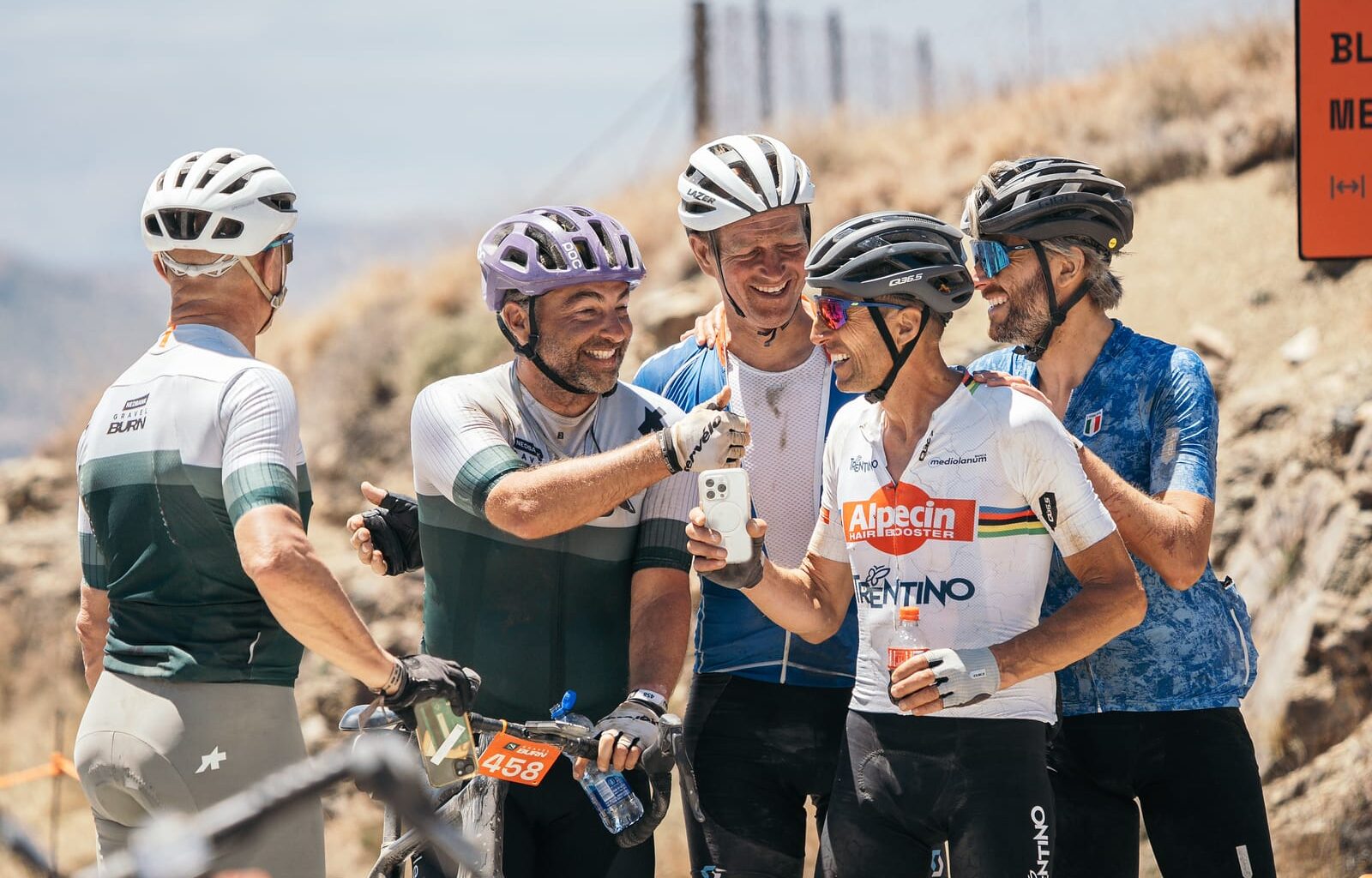
Freedom. Challenge. Connection. Maybe that’s all the definition it needs?

Gravel Burn Photographers, Gruber Images
The ‘spirit of gravel’ is a phrase thrown around with many meanings. To some it means the unwritten code that characterises gravel cycling. To me, these words come to mind: freedom, individuality, grassroots, community, friendly, welcoming. It’s something that sits between mountain biking and road cycling, with the best of both worlds.
However, its definition is fluid and debated. Though we can probably all agree it embodies a sense of adventure, camaraderie, and a less-serious attitude compared to traditional road racing. It’s an escape from the mainstream and a way to embrace both the challenge and the freedom of riding on varied terrains.
At Gravel Burn in South Africa, three riders who have shaped gravel’s evolution sat down after a grueling stage to discuss what this nebulous term actually means, and whether it’s sustainable as the discipline continues to professionalise. Pro cyclists Haley Smith, Lachlan Morton and Peter Stetina brought unique perspectives to the conversation during a panel discussion that I hosted at Gravel Burn.
Seven days in the Karoo: Inside the inaugural Gravel Burn
A reminder of why suffering on a bike still matters
 Haley Smith: Freedom, connection, and re-engagement
Haley Smith: Freedom, connection, and re-engagement
Smith’s connection to gravel goes deeper than most. A pro racer, Olympian, and researcher, she spent her masters degree at Queen’s University in Kingston, Canada, exploring why adults return to sport.
Her main thesis focused on parent-child co-participation in mountain biking, but her side project, later published in Sport in Society under the title “The successes and spirit of gravel cycling: providing freedom, challenge, and connection,” was an examination of gravel’s emotional and social power. Smith’s full thesis is well worth a read [pdf].
“We wanted to understand why these events are so good at drawing adults into sport, people coming for the first time or coming back after years away,” Smith said. “It wasn’t a hard sell to my supervisor because our lab studies re-engagement, how to keep people active across life.”

This post is for subscribers only
Subscribe now
Already have an account? Sign in
Did we do a good job with this story?
👍Yep
👎Nope

